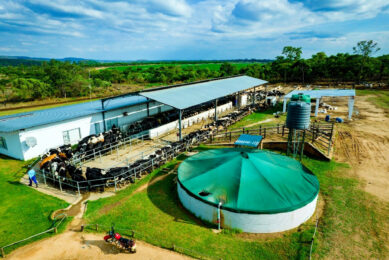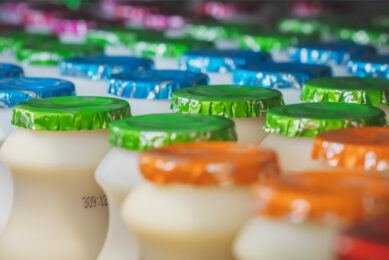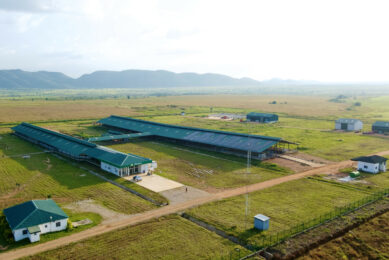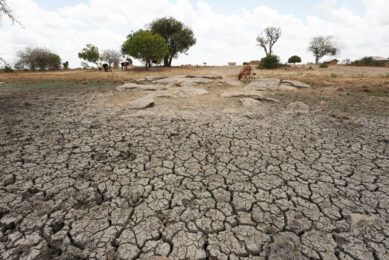A developing dairy industry in Ghana
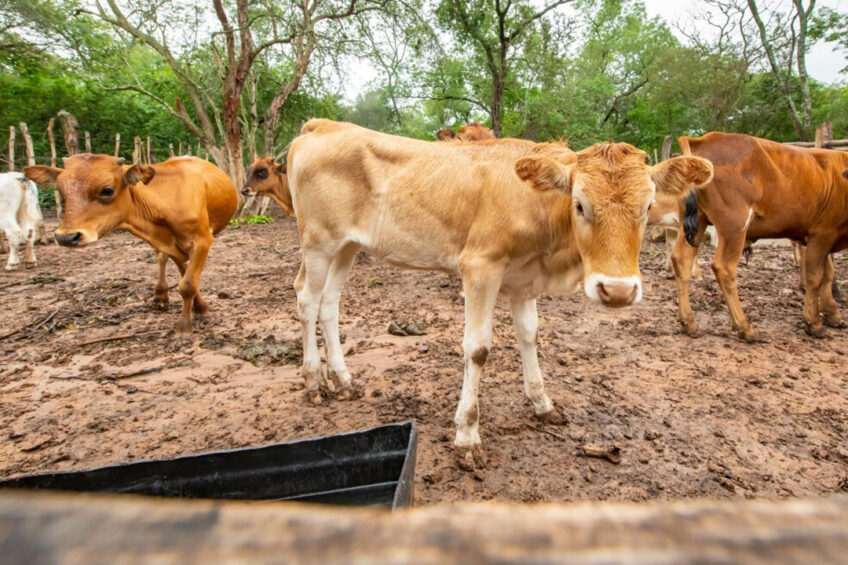
While domestic fresh milk production in Ghana represents less than 1% of the total dairy market value, the country’s dairy market presents bright prospects for suppliers of fat-filled milk powder, estimated at a retail sale price value of about US$350 million in 2021, according to a USDA GAINS report.
In Ghana, historically, the market, which was comprised mainly of open-air markets, small (12 sqm) grocery shops, and a few supermarkets, has not been fond of fresh milk. This was due to numerous factors, including poor demand, limited supply, the issue of cold chain logistics and erratic electricity supply, and only a few households with refrigerators or freezers. Dairy products available on the market, therefore, have mainly been derived from reconstituted milk, whereas the consumption of fresh milk had been limited to some cattle-rearing communities.
With recent economic development, the market landscape is changing with more supermarkets and the advent of malls, more modern market structures and improved cold chain logistics. Furthermore, the growth of the expatriate community and a booming tourism industry prior to the Covid-19 pandemic resulted in an increase in demand for fresh milk in the major cities.
In 2020, the per capita consumption of milk and other dairy products was about 17kg. Among the popular dairy products on the market include full-fat milk powders, a full range of UHT milk (full cream, semi-skimmed, and skimmed), whey dried milk powder, full cream evaporated milk, unsweetened milk, sweetened condensed milk, tea creamers, infant formulas, flavoured milk drinks, yoghurt, ice-cream and cheese.
A limited domestic supply of dairy products
The domestic supply of dairy products is limited to fresh milk, yoghurt, and locally made cheese called Wagashi. Though having a processing capacity of 7,000 litres per day, Nature Farms Ghana Limited, the leading supplier of domestically sourced fresh milk, is only able to supply less than half of this quantity due to limited supplies from the sourcing centres, translating into less than 1 million litres per year. The price of a litre of fresh milk sold at about US$1.7.
In Ghana, the average yield of milk from a cow is 3 litres per day. The fat content of the domestically produced fresh milk averages 3.5% but reaches 4% in the dry season. In all, the market size of domestically sourced and processed milk (both mechanised and artisanal) averages US$2 million annually.
Major industry players
Nestlé, Fan Milk Plc, Promasidor, Friesland Campina, and Arla Foods make up the leading actors in the Ghanaian dairy industry. In most cases, these companies distribute through dedicated channels from the production facilities to retail outlets. The current price of a litre of domestically produced fresh milk is Ghȼ13.00 (US$1.70).
Dairy products imported to Ghana
Imports of various dairy products form virtually the entire supply on the Ghanaian market. Products imported include:
- Milk and cream, unconcentrated and not sweetened. These include full cream, semi-skimmed, and skimmed UHT milk.
- Milk and cream, concentrated, sweetened or flavoured, or containing added fruit or cocoa. These include non-fat dried milk, buttermilk, curdled milk and cream, yoghurt, kefir, etc.
- Whey and other products consisting of natural milk constituents.
- Butter and other fats and oils derived from milk.
- Cheese and curd.
In 2021, the Ghanaian dairy import market was worth US$127 million, an increase in value of 30% from the previous year (2020: US$97 million). New Zealand was the biggest exporter of dairy products to Ghana followed by Ireland, France, Saudi Arabia and Germany.
The threat of non-dairy creamers
Some industry analysts hold the view that growth in demand for non-dairy creamers by consumers who believe it is a healthier alternative will eventually pose a substantial threat to the market share of powdered milk. However, it is argued that such non-dairy creamers are used primarily by coffee and tea drinkers, who constitute only a fraction of powdered milk consumers.
A significant increase in exports
Between 2017 and 2021, exports of various milk and dairy products from Ghana to other West African countries such as Côte d’Ivoire, Senegal, and Nigeria have increased significantly. In 2021, the value of dairy products exported from Ghana totalled about US$16.4 million, representing about 62% increase over the preceding year’s value of US$10 million. The leading category of dairy exports from Ghana are milk and cream, concentrated or sweetened, with the export value of more than $15 million in 2021. This was nearly 94% of the total value of dairy export in 2021.



